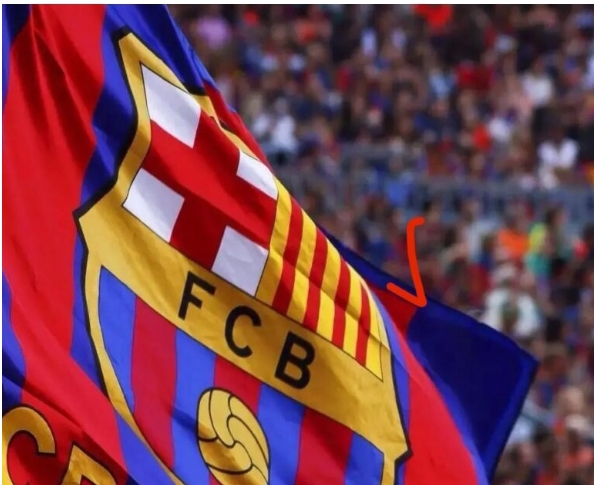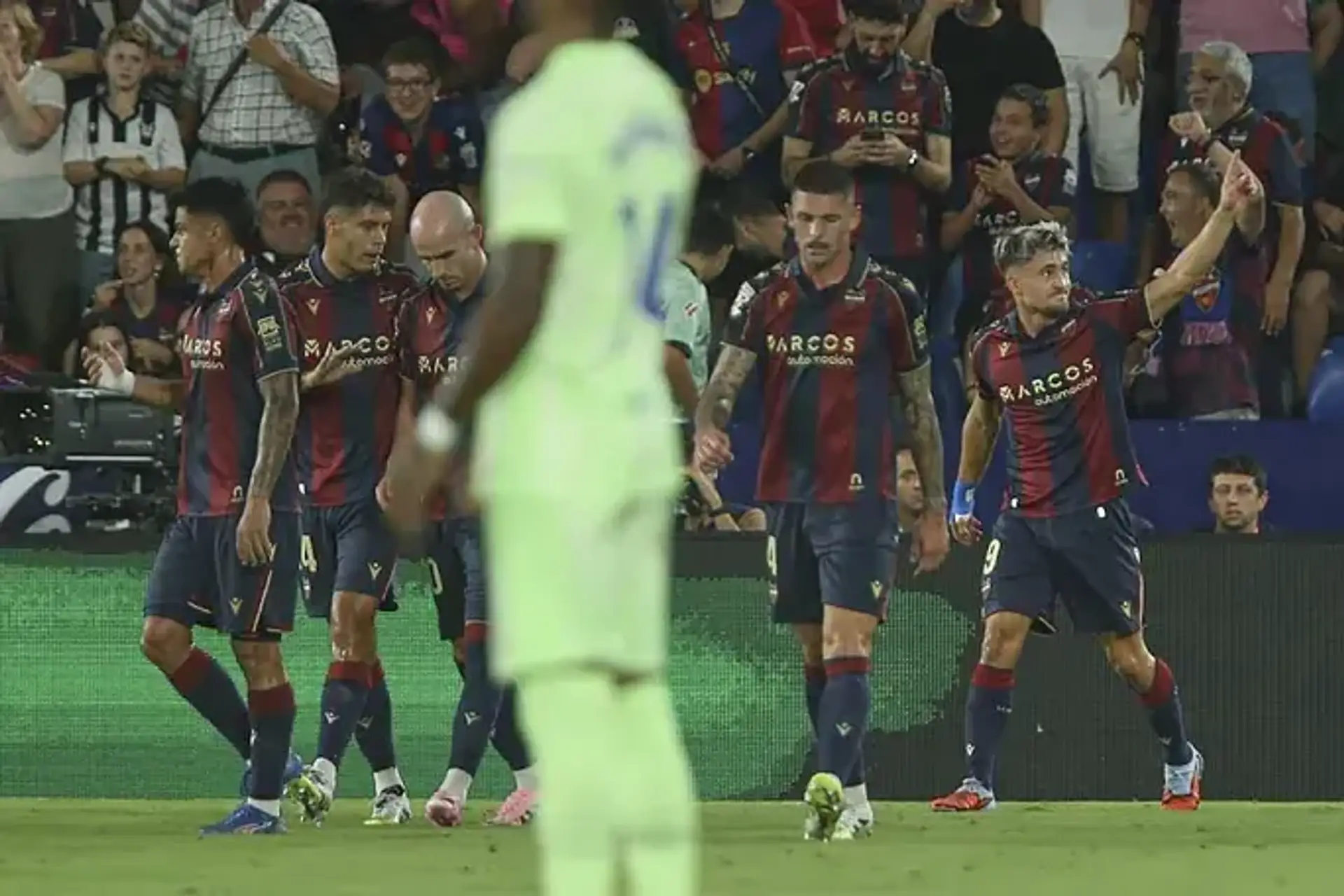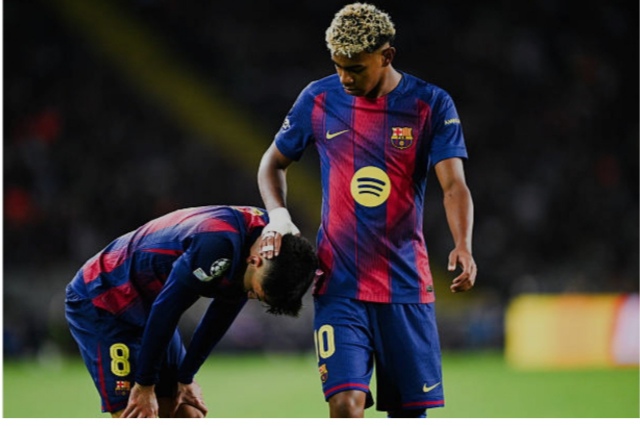When Barcelona fans saw Hansi Flick being sent off in disbelief during the tense La Liga clash this weekend, one reaction echoed across the football world: “You’ve got to be kidding me.”
It wasn’t a heated touchline brawl, nor an act of aggression — it was simply a moment of passion, frustration, and human reaction. But somehow, for La Liga referees, that was enough to brandish the red card. And once again, questions are being raised about the standards, fairness, and consistency of officiating in Spain’s top flight.
Many fans have described the decision as “embarrassing,” “ridiculous,” and even “a new low.” And perhaps they’re right. Because what happened to Flick on the touchline wasn’t just about one manager losing his cool — it was a reflection of a much deeper issue that has plagued La Liga for years: a refereeing system that appears increasingly out of touch with the spirit of the game.
THE INCIDENT: A MANAGER’S EMOTION TURNED INTO A CRIME
It all unfolded late in the second half. Barcelona were battling through a frustrating game, struggling to find rhythm as decisions kept going against them. Fouls went unpunished, advantage calls vanished into thin air, and Flick, usually calm and measured, finally showed visible irritation after yet another questionable call.
He stepped to the edge of his technical area, clapped sarcastically toward the referee — an emotional but harmless gesture — and within seconds, the fourth official called for attention. The referee rushed over and, to everyone’s shock, produced the red card.
Flick stood frozen, his face a mix of disbelief and disappointment. He simply couldn’t believe it — and neither could anyone watching.
On the sidelines, Barcelona’s staff erupted in protest. The players looked baffled. And across social media, fans’ outrage exploded instantly: “That’s not football anymore,” one wrote. Another fan tweeted, “Referees in La Liga think they’re the stars of the show.”
A COACH WHO CARES TOO MUCH
It’s worth remembering that Hansi Flick isn’t some volatile, impulsive coach with a history of outbursts. He’s a Champions League-winning manager, respected worldwide for his professionalism, composure, and tactical intellect.
Throughout his career, Flick has carried himself with calm authority — the kind of coach who lifts teams through quiet discipline rather than chaos. If even he is reaching a breaking point, it says a lot about what’s happening on La Liga’s touchlines.
Flick’s frustration wasn’t personal; it was the culmination of weeks of questionable officiating that have left players, coaches, and fans scratching their heads. From missed penalties to inconsistent red cards, La Liga’s refereeing controversies are becoming far too common.
Barcelona, in particular, have found themselves on the wrong end of several debatable calls this season — some of which have directly impacted results. It’s not about conspiracy theories or favoritism; it’s about competence and consistency, two qualities that seem to be missing far too often.
THE BIGGER PROBLEM: LA LIGA’S REFEREEING CRISIS
It’s no secret that La Liga’s referees have been under scrutiny for years. Critics, both domestic and international, have highlighted a growing trend of over-officiating — where referees insert themselves too heavily into the narrative of the match.
Instead of managing the game with empathy and understanding, they often reach for cards with alarming speed, turning minor emotional reactions into punishable offenses.
Football, at its core, is a game of emotion. Coaches shout, players protest, fans roar — it’s part of what makes the sport so alive. But in Spain, that natural emotion is increasingly being treated as misconduct.
One former player put it bluntly after Flick’s dismissal:
“If this happened in the Premier League or Bundesliga, it would be a warning or a quiet word from the fourth official. But in La Liga, it’s an instant red card. It’s like they’re allergic to passion.”
And that’s exactly what the problem is — the lack of balance.
VAR – THE DOUBLE-EDGED SWORD
Of course, no discussion about refereeing would be complete without mentioning VAR. What was once introduced to bring clarity has instead become a source of even greater confusion.
In theory, VAR should reduce mistakes. In practice, it has amplified them — or, more accurately, it has made fans and players more aware of every inconsistency. Some fouls are reviewed endlessly, others ignored completely. Some touches are enough for penalties, others mysteriously overlooked.
Barcelona’s recent fixtures have been prime examples. Handballs that look identical result in opposite decisions, depending on the week or the referee.
Fans no longer understand what the rules actually mean, and that’s the real tragedy. The beauty of football lies in its rhythm and flow — not in constant interruptions, endless checks, and officials who seem to crave the spotlight.
PLAYERS AND FANS REACT
After Flick’s dismissal, Barcelona players were visibly furious. Ronald Araujo, who had been a rock in defense, gestured in disbelief toward the officials. Lamine Yamal was seen shaking his head as the coach walked off the pitch.
Post-match, players avoided open confrontation, but the frustration was evident in their tone. One unnamed source close to the dressing room reportedly said, “We don’t understand what the referee wants from us anymore. You can’t even talk. You can’t even react. It’s impossible.”
Fans weren’t any calmer. Across social media platforms, the phrase “La Liga refereeing is a joke” trended throughout the evening. Many called for accountability and better referee training, while others went further, accusing officials of ruining the flow of Spanish football altogether.
HANSI FLICK’S POST-MATCH RESPONSE
Despite his visible frustration, Flick handled the situation with characteristic professionalism afterward. Speaking to reporters, he chose his words carefully:
“I don’t want to talk too much about the referee. Everyone saw what happened. I’m proud of my players — they fought until the end. But I think in football, sometimes, emotion is part of the game. Maybe that’s something we should remember.”
It was a classy response, but also a subtle rebuke — a reminder that football isn’t meant to be robotic. Flick’s words resonated with fans who feel that referees have lost touch with the human side of the sport.
THE NEED FOR CHANGE
La Liga’s officiating standards are at a crossroads. If the league truly wants to maintain its reputation as one of the best in the world, it must address this growing frustration.
Referees need more than just technical training — they need psychological and situational awareness. Understanding the flow of the game, reading emotions, and exercising discretion are just as important as knowing the rulebook.
The best referees in football history — Collina, Webb, Brych — were admired not because they were strict, but because they were sensible. They commanded respect through empathy and control, not authority and punishment.
Until that balance returns, La Liga risks alienating its own audience.
CONCLUSION: THE PASSION POLICE STRIKE AGAIN
Hansi Flick’s red card wasn’t just a random moment of bad luck — it was a snapshot of a systemic problem. When one of Europe’s calmest, most respected coaches can’t express mild frustration without being expelled, something is seriously wrong.
Football thrives on passion, emotion, and connection. Take that away, and you strip the sport of its soul.
La Liga must wake up before the “beautiful game” turns into the “clinical game” — a soulless spectacle where referees are the main attraction and emotion is a punishable offense.






